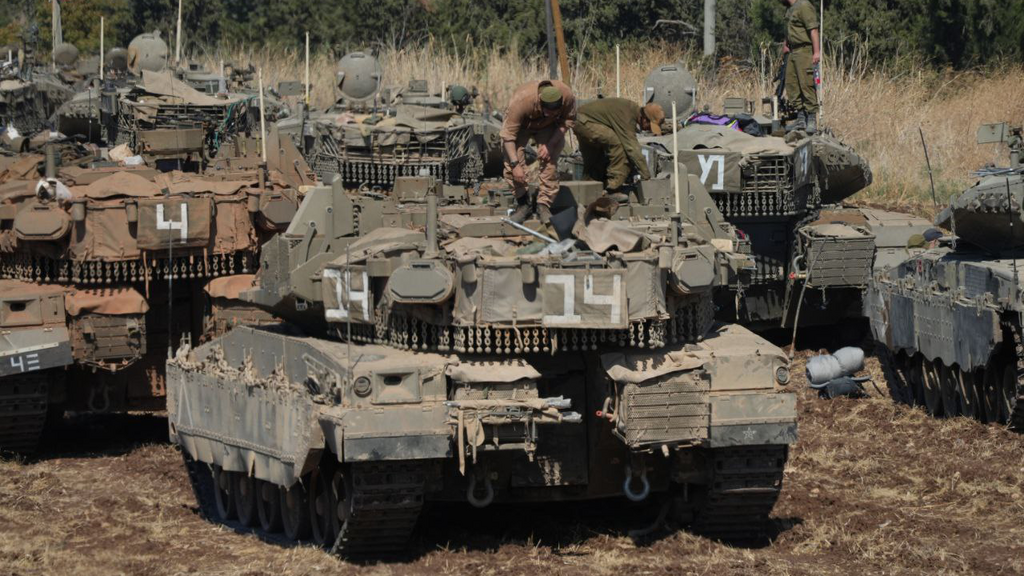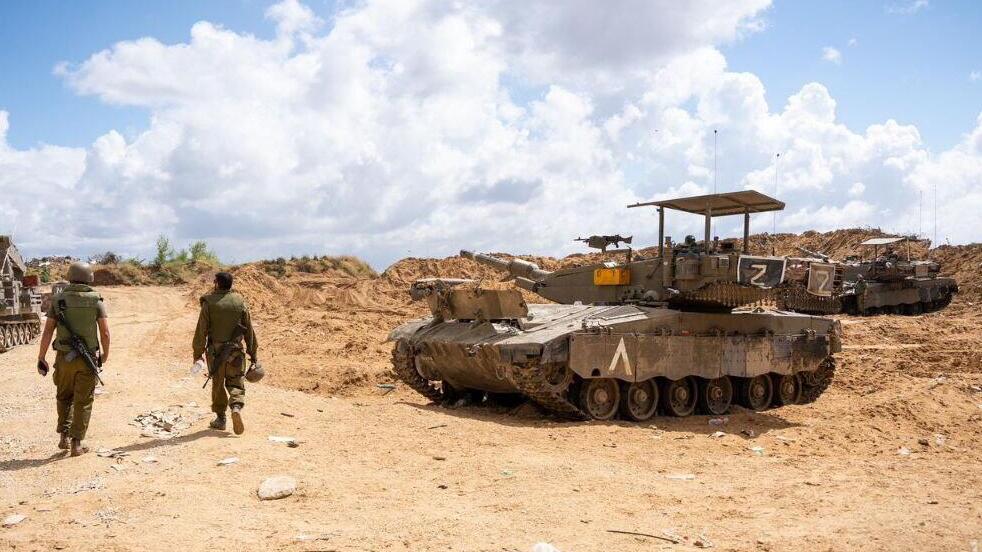Getting your Trinity Audio player ready...
The IDF, for the first time in its history, will outsource the repair and maintenance of its various armored vehicles including tanks and APCs to companies in the Israeli defense industry due to the urgent need seen in the year-long war against Hezbollah and Hamas. The repairs were previously carried out exclusively by the IDF’s Technology and Maintenance Corps.
Ynet learned on Sunday that the Defense Ministry will issue the first tender on the matter in the coming months via its Department of Production and Procurement. Additionally, the department, in consultation with the IDF, will decide on whether to transfer part of the armored vehicle production, currently performed by the Technology and Maintenance Corps, to local industries.
Armored combat vehicles have seen substantial wear due to the ongoing war and require maintenance and repairs to ensure continuous operational activity. The load on the IDF on this matter is extremely high. To manage routine tasks, the Technology and Maintenance Corps has even employed retirees — former professionals volunteering to assist the army.
Moreover, the IDF will need to restore all its armored vehicles to full readiness once the war concludes. According to the Defense Ministry, this will require a years-long process given the vast number of vehicles and the need for a large quantity of spare parts.
The IDF and the Defense Ministry have concluded that the scope of this task necessitates, for the first time, collaboration with external entities — Israeli industries that will take part in the mission. Another conclusion drawn from the war is the need to significantly expand the IDF’s fleet of armored vehicles.
The relevant industries for the tender are heavy industries involved in metalwork, such as large-scale welding and machining. Among the candidates are companies like Israel Shipyards, Ahot Ashkelon Industries, Elta Systems, Nidec and others.
It was also reported that the Defense Ministry has already held preliminary talks with these companies, which have shown a willingness to participate in the tender and invest in the necessary equipment to integrate into the military’s system.
"So far, we haven't had an industry for restoration and assembly,” A Defense Ministry source told Ynet. “The increased procurement needs of the IDF and the necessity to restore existing equipment required us to think differently."
The war highlighted the critical need for Israel’s independence in all supply aspects for the IDF and strengthening local industries, partly due to difficulties in acquiring ammunition and equipment from abroad, as some countries don’t allow certain components to be exported to Israel.
The Israeli munitions industry (including Israel Aerospace Industries, Israel Military Industries, Elbit Systems, etc.) has doubled and even tripled its production capacity, based on the IDF's promise to maintain a steady stream of orders even after the war, making the investment worthwhile.
Get the Ynetnews app on your smartphone:




